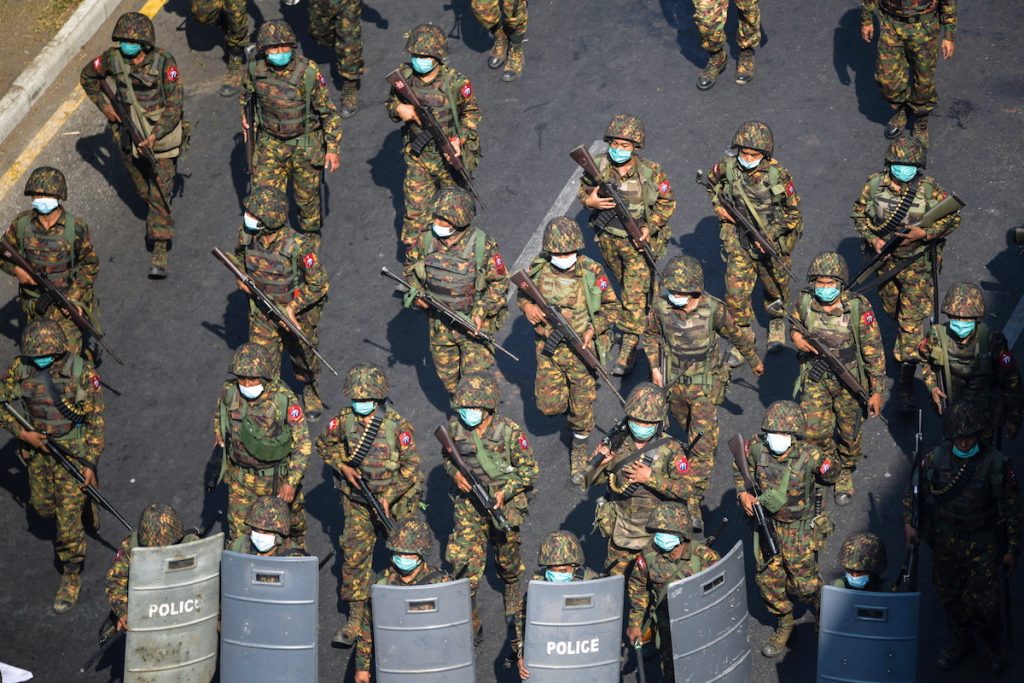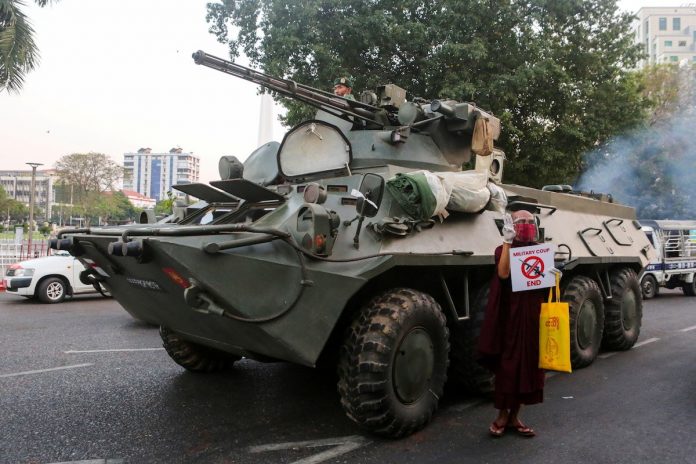Myanmar’s military junta has stopped a plan to use Buddhist monks to man military checkpoints in the city of Mandalay.
The decision came after the Buddhist community in the city expressed their strong opposition to the military’s proposal, said a report from Myanmar Now.
Myanmar’s military has earlier asked for 30 monks, one for each checkpoint in the city, from the Sangha Maha Nayaka Committee, an organization of monks.
In March of this year, the monks’ organization issued a statement condemning the violence against protesters and even joined rallies and demonstrations with local Christians.
“Now they know that nothing can be done without the consent of the Buddhist monks,” a member of the Sangha Union, which represents monks opposed to the junta, told Myanmar Now.
The move to place monks at checkpoints was widely seen as an attempt to shield soldiers from attacks by urban guerrilla groups.
Critics said that it would endanger the lives of monks and also damage the reputation of the monastic order.
“If monks cooperate with [the junta], the people will no longer see them as monks,” said a monk from Mandalay’s Mya Taung monastery.
“They are just trying to exploit the religion for their political gains,” he added.

A report on AsiaNews earlier said most people sympathize with those who resist the military, but if monks are also wounded in attacks in the city, support for the anti-coup fighters might decline.
The report quoted Ashin Issariya, a monk who played an important role in the 2007 Saffron Revolution, saying that monks “who accept the junta’s plan are traitors to the country.”
Since February, Myanmar’s military have arrested more than 20 monks, including two leading figures from the monastic community in Mandalay, Venerables Thawbita, and Myawaddy Sayadaw.
The Southeast Asian country has sunk into chaos since the coup, with protests continuing daily, insurgencies flaring in border regions and widespread strikes that have severely damaged the economy.
The army overthrew elected leader Aung San Suu Kyi, alleging irregularities in an election swept by her National League for Democracy party in November 2020. The then electoral commission and international monitors said the army accusations were wrong.
The military authorities say their seizure of power should not be called a coup because it was in line with the constitution.









